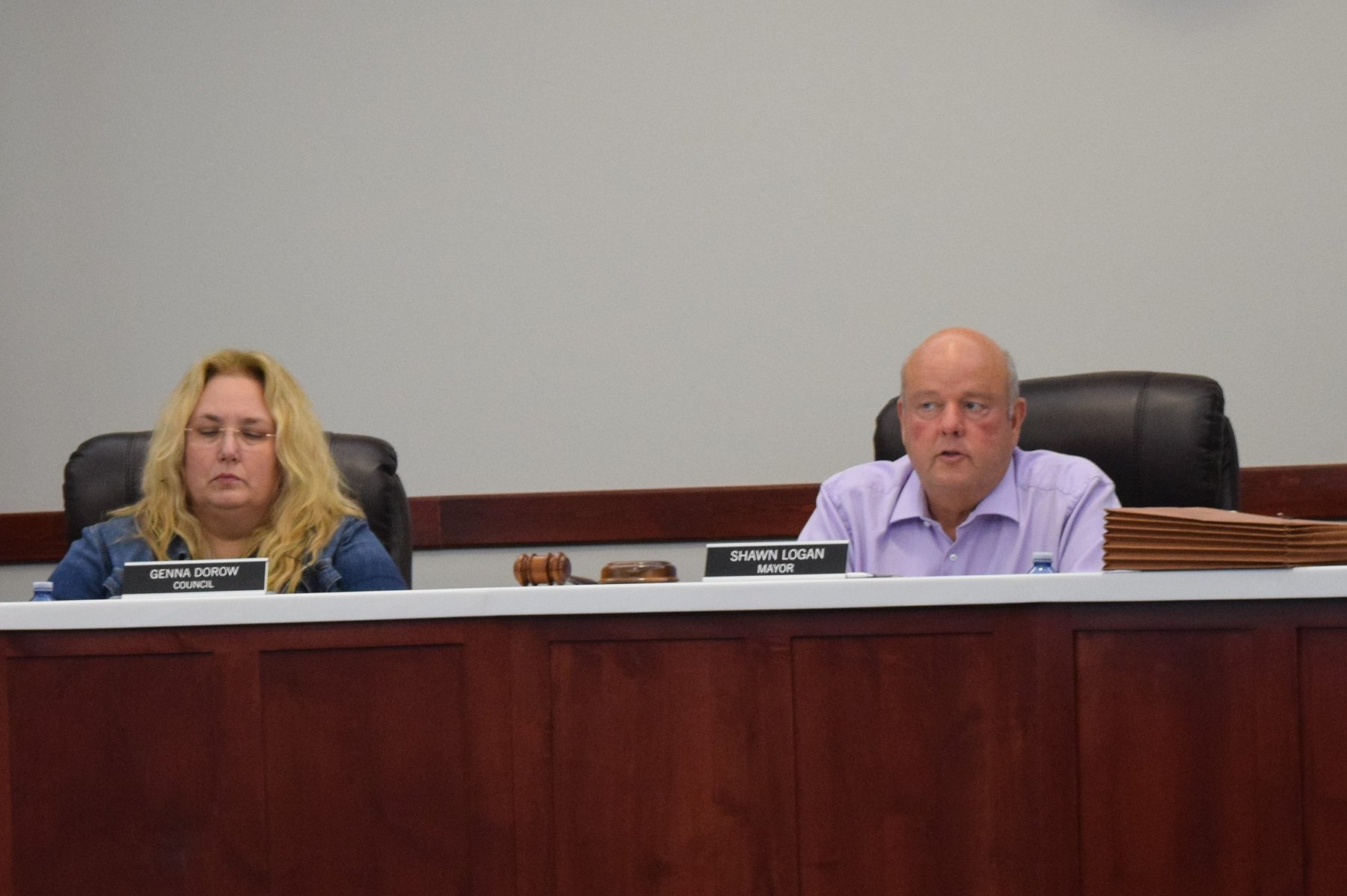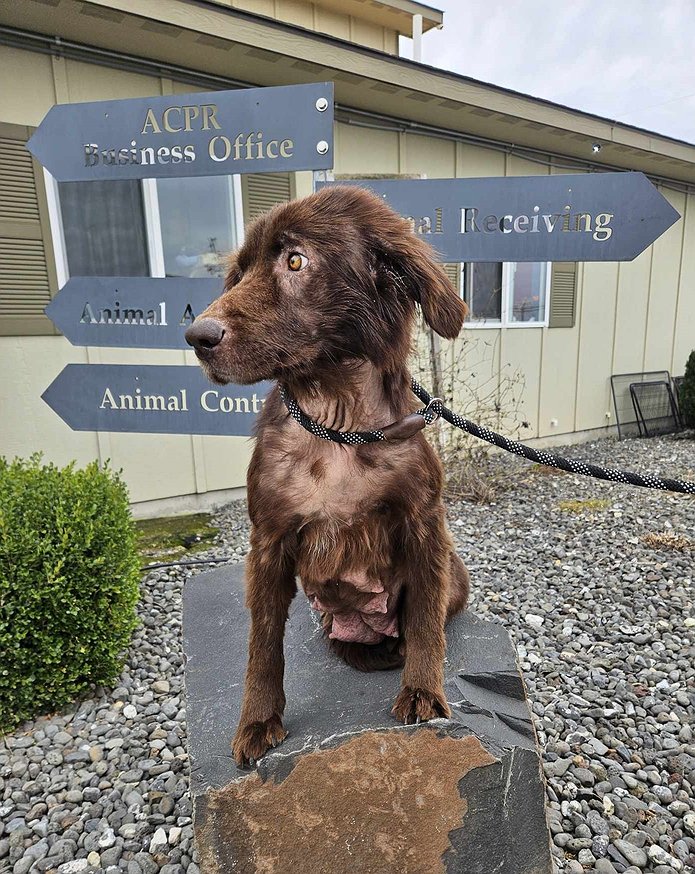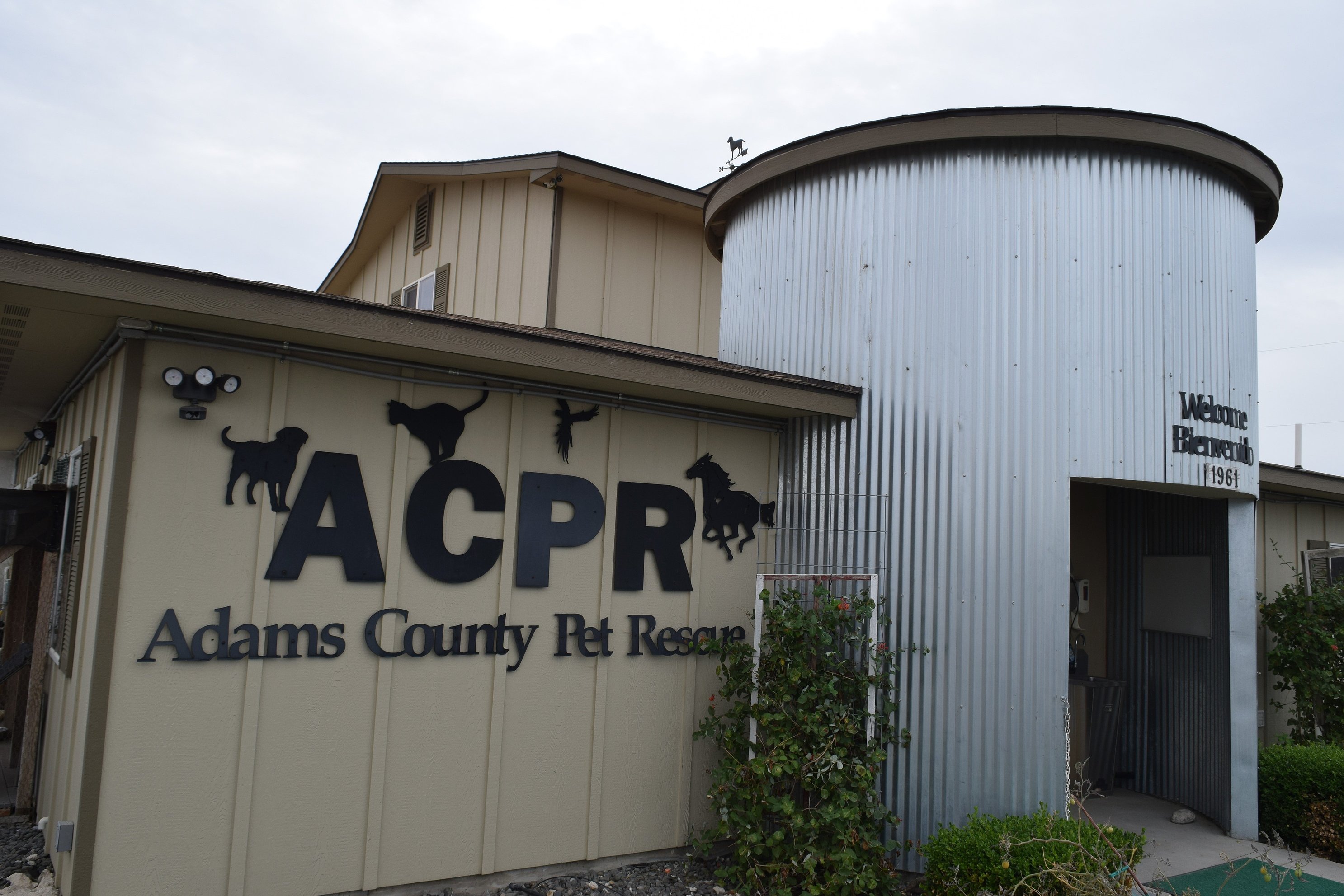City, ACPR advisor discuss Othello animal control contract
GABRIEL DAVIS | Hagadone News Network | UPDATED 1 year, 9 months AGO
Gabriel Davis is a resident of Othello who enjoys the connections with his sources. Davis is a graduate of Northwest Nazarene University where he studied English and creative writing. During his free time, he enjoys reading, TV, movies and games – anything with a good story, though he has a preference for science fiction and crime. He covers the communities on the south end of Grant County and in Adams County. | March 6, 2024 1:35 AM
OTHELLO — Retired veterinarian Ernie Summers addressed the Othello City Council during the Feb. 26 meeting to raise concerns about Adams County Pet Rescue’s sheltering contract negotiations with the city, which fell through in December.
Summers stated he is not an ACPR board member, but has been an advisor for ACPR for 13 years and was involved in the negotiations for ACPR’s 2024 contract with the city.
Negotiation concerns
Summers said the negotiations began with ACPR requesting $150,000 in funding for 2024, and that the expense of providing for city dogs is about $300,000.
“The mayor countered with an offer of $100,000 and the city would take over animal control,” Summers said. “This seemed like a fair offer to us and it met all of our criteria. Unfortunately, it included two provisions that we could not accept. Number one, it required us to euthanize a certain number of animals. We are a certified no-kill facility. If we did that, we would lose our accreditation, and a large amount of our donations would dry up.”
Othello Mayor Shawn Logan addressed Summers’ comments in a later interview. He stated that the contract did not require euthanizing a certain number of animals. He said the city intends to euthanize dangerous and marauding dogs that are a threat to residents or other animals.
The contract offered to ACPR mentioned “disposal” of dangerous dogs once, and did not mention euthanasia elsewhere.
“For dangerous dogs, as defined by the Othello Municipal Code 6.04.120, after the holding period … expires, ACPR shall continue to hold the vicious dog(s) until such time that the City authorizes disposal of the dog(s),” the draft contract states.
ACPR stated from the very beginning of negotiations it is unwilling to euthanize dogs. The other part of the contract Summers said ACPR didn’t agree with required the agency to accept dogs only through animal control officers, and not take surrenders or strays.
“This would require a lot more time and effort and it would result in even more animals being abandoned into the county,” Summers said. “ACPR estimates that approximately two-thirds of the abandoned animals that we have to deal with, that we pick up out in the county, are actually animals that come from here in Othello.”
Logan said this provision was a move to help the ACPR reduce their dog numbers and encourage dog-owner responsibility.
“From the city's perspective, taking any and all dogs was allowing owner irresponsibility, and in fact by doing that, they were encouraging owner irresponsibility, and that was our position,” Logan said.
The contract also said that the city would take over 100% of animal control responsibilities and dog licensing.
“We wanted them to take steps to bring the shelter into a place where they didn't have so many dogs,” Logan said.
Funding disparity
Both Summers and Logan explained that ACPR used to rely on significant donations from one community member to keep offering its services at the same level, but that community member is now deceased. As a result, the agency is struggling to come up with funds to keep its doors open.
“They no longer have that source of revenue, and so now they are trying to work through a very difficult transition, and in order to work through that transition, they're going to have to make some changes,” Logan said. “We were only making suggestions. We were just trying to help them.”
Summers said Logan told ACPR he would take the $100,000 proposal to the council after ACPR told him they would not accept euthanizing any dogs or only taking in dogs from animal control.
“The last time I talked to them, I said, ‘Maybe I can get the city council to agree to $100,000,’ and I was going to come back, but when we had the meeting … a council member made mention (that) they want us to triple the amount that we're paying them and they're going to do less work, because we're going to take over dog pickup and we're going to do the licensing,” Logan said. “I'm not for that, and the other council members agreed with that statement…$75,000 was all they were willing to negotiate with in that moment.”
Summers explained this from his perspective as an advisor to ACPR.
“Nothing was mentioned about the euthanasia mandates or the ability to take surrenders,” Summers said. “In our mind, negotiations were still open, but we never heard anything back from Mayor Logan or (council members) after that. We did not find out until a month after this that the city was negotiating with another provider behind our backs.”
Logan said ACPR responded to the formal offer of $75,000 — with the city responsible for animal control and licensing and the stipulations regarding dangerous dogs and only accepting dogs from animal control officers — through a letter dated Dec. 8 and signed by ACPR Board President Ken Simmons declining the offer.
“We are unable to provide sheltering services for that fee,” the letter said. “To provide sheltering services to the city of Othello in 2024, Adams County Pet Rescue is requesting $150,000 in funding … We are asking for true service rendered and to be compensated for that service. Unless compensation is agreed upon our service ends December 31st.”
Logan outlined the city’s response to this letter.
“We basically had three weeks to go put something together. The city council felt that the negotiation was over. The city council was not willing to pay (ACPR) $150,000, and they said that it was $150,000 or nothing. That's what the letter said,” Logan said. “There wasn't any room in negotiation in that, and the city has the responsibility, so the city had to take action. So we didn't go behind their back, they basically ended that negotiation then and there.”
Hand N Paws Animal Assistance reached out to the city about providing dog sheltering services, Logan said. The city council voted to approve a one-year contract with Hands N Paws during the Feb. 12 regular meeting.
“The city council, when it made its decision to go a different route, did so, I think, for good reasons,” Logan said. “But at the same time, the pet rescue is still a good operation. They still love animals. They still care. They still do a great job taking care of animals, and I know they're doing their best to continue to run their operation. I just hope that during this transitional time for them, that they're able to find a way to streamline their operation and continue to be relevant.”
Gabriel Davis may be reached at [email protected].
ARTICLES BY GABRIEL DAVIS

Work-based learning lets students build their own futures
MOSES LAKE — Work-based learning provides education opportunities for the workforce to receive hands-on training and technical education and prepare themselves to enter various industries. Educators and workforce development professionals from Eastern Washington discussed some the training they offer and the benefits of their programs. Next Generation Zone, an affiliate of WorkSource based in Spokane, provides job training opportunities for youth and young adults ages 16 to 24. Program Coordinator Kate Martin said there are multiple benefits to the program. “One of them is a paid work experience, and that’s where we reach out to area employers who are willing to take a young person and train them,” she said. “This is a short-term learning experience, so it’s typically about 240 hours; sometimes it could be longer or shorter. We’re the actual employer; we cover all of their wages, taxes, the L&I, and the employer just agrees to give them the experience and train them in whatever field it is that they’re wanting to go into.”

Serving schools: ESD superintendents reflect on operations, priorities
MOSES LAKE — Educational service districts are government-mandated agencies put in place to provide services to school districts across the state. ESD Superintendents discussed what they do and their priorities in operating their districts. ESD 105, led by Superintendent Kevin Chase, serves four counties, including Kittitas, Yakima and portions of Klickitat and Grant counties and provides support for 25 school districts – including Royal School District and Wahluke School District – and more than 66,000 students. “We help them collaborate with each other as well or collaborate with other partners,” Chase said. “(It’s) a lot of advocacy work, either regionally or across the state, or even federally, working on different issues that impact our education. And we provide very specialized services in certain situations in order to meet the needs of our students in our region and of our school districts.”

Columbia Basin Project making headway through Odessa Groundwater program
CASHMERE — The Columbia Basin Project is making gradual progress toward completion with particularly significant accomplishments for the Odessa Groundwater Replacement Program in the last six months or so, according to Columbia Basin Development League Executive Director Sara Higgins. “When we’re dealing with a project of this size, advancement is kind of like watching paint dry, but yes, there have been (developments),” she said. “There are a lot of exciting things happening right now.” There are more than 300 miles of main canals, about 2,000 miles of lateral canals and 3,500 miles of drains and wasteways in the irrigation project, according to the U.S. Bureau of Reclamation website. The CBDL advocates for the operation of those waterways and for the project to continue “build-out.”







